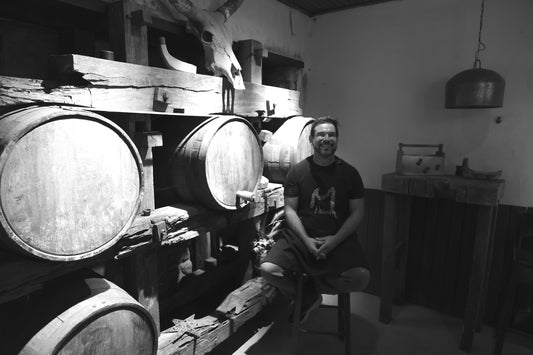
Coffee and Sustainability: What You Need to Know
Article Outline
- Introduction
- Introduction to coffee
- Importance of sustainability in coffee production
- The Global Impact of Coffee Consumption
- Overview of Coffee Consumption Worldwide
- Trends in Coffee Consumption
- Understanding Sustainability in Coffee Production
- What is Sustainable Coffee?
- Key Principles of Sustainable Coffee Production
- Environmental Challenges in Coffee Production
- Deforestation
- Water Usage
- Biodiversity Loss
- Social Implications
- The Role of Fair Trade
- Community Impact
- Economic Factors
- Economic Challenges for Coffee Farmers
- Price Volatility
- Technological Advances in Sustainable Coffee Production
- Innovations in Farming Practices
- Advancements in Coffee Processing
- How Consumers Can Promote Sustainability
- Choosing Sustainable Brands
- Understanding Labels and Certifications
- Role of Governments and Organizations
- Regulations and Initiatives
- Support for Farmers
- The Future of Sustainable Coffee
- Industry Trends
- Predictions and Innovations
- Conclusion
- Summary of Key Points
- Final Thoughts on the Role of Coffee Lovers
- FAQs
- Common questions about coffee and sustainability
---
__Article: Coffee and Sustainability: What You Need to Know__
- Introduction
Coffee is more than just a beverage; it's a global phenomenon that twinkles with complexity, connecting people and places across continents. With the exponential growth of coffee consumption worldwide, it becomes imperative to consider the sustainability of its production and the far-reaching implications it holds for our planet and its people.
- The Global Impact of Coffee Consumption
Overview of Coffee Consumption Worldwide
Every day, millions start their morning with a fresh cup of coffee, leading to an astronomical consumption level globally. This widespread demand sets the stage for intensive coffee farming, but at what cost?
Trends in Coffee Consumption
The trends in coffee consumption show a shift towards specialty and artisan coffees, which often emphasize quality and ethical sourcing. This presents a unique opportunity to steer the market towards more sustainable practices.
- Understanding Sustainability in Coffee Production
What is Sustainable Coffee?
Sustainable coffee is produced in a manner that is environmentally responsible, economically feasible, and socially beneficial. It aims to create a cycle of positive impacts.
Key Principles of Sustainable Coffee Production
- Environmental stewardship
- Social equity and labor rights
- Economic viability for all participants in the supply chain
- Environmental Challenges in Coffee Production
Deforestation
One of the most significant environmental challenges in coffee production is deforestation. Expanding coffee plantations often encroach on vital forest lands, endangering the ecosystem.
Water Usage
Coffee plants require substantial water resources, not only for growth but also during processing. This high water demand can lead to strain on local water supplies, particularly in arid regions.
Biodiversity Loss
The simplification of ecosystems to accommodate coffee monocultures can lead to a devastating loss of biodiversity.
- Social Implications
The Role of Fair Trade
Fair trade practices ensure that smallholder coffee farmers receive a fair share of the profits, helping to improve their living standards.
Community Impact
Sustainable coffee production can bolster local communities by providing stable income and social services, like education and healthcare.
- Economic Factors
Economic Challenges for Coffee Farmers
Price volatility in global coffee markets can lead to unpredictable earnings for farmers, making sustainable operations challenging.
Price Volatility
The fluctuating prices often leave farmers vulnerable, undermining sustainable growth and long-term investments in environmental practices.
- Technological Advances in Sustainable Coffee Production
Innovations in Farming Practices
From precision agriculture to biodegradable products, technological innovations are playing a pivotal role in improving the sustainability of coffee production.
Advancements in Coffee Processing
Technological advancements not only enhance efficiency but also reduce environmental impact during the processing phase.
- How Consumers Can Promote Sustainability
Choosing Sustainable Brands
By opting for brands that prioritize sustainable practices, consumers can drive significant change in the industry.
Understanding Labels and Certifications
Learning about various sustainability certifications can help consumers make informed choices.
- Role of Governments and Organizations
Regulations and Initiatives
Government policies and international regulations can foster an enabling environment for sustainable coffee production.
Support for Farmers
Supportive measures, such as grants and education, are essential in helping farmers adopt sustainable practices.
- The Future of Sustainable Coffee
Industry Trends
The coffee industry is seeing a gradual shift towards sustainability, driven by both consumer demand and recognition of its long-term benefits.
Predictions and Innovations
Emerging technologies and evolving market dynamics predict a robust framework for the future of sustainable coffee.
- Conclusion
As the world’s appetite for coffee continues to grow, so does the responsibility to ensure its sustainable production. Each cup of coffee holds the essence of collaboration needed to nurture our planet and uplift its people.
- FAQs
- What does 'sustainable coffee' really mean?
- How significant is the environmental impact of coffee production?
- Can consumers really influence coffee sustainability?
- What are the economic benefits of sustainable coffee production for farmers?
- What future innovations are likely to shape sustainable coffee cultivation?
SEO Tags: Coffee, Sustainability, Environmental Impact, Fair Trade, Future Trends.


